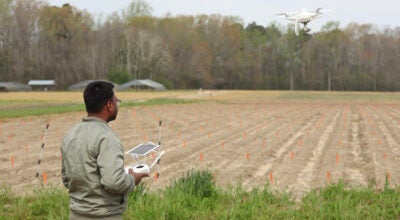Council growls at tethering law
Published 7:22 pm Thursday, January 17, 2013
City Council balked Wednesday at making a move toward enacting an ordinance regulating the tethering of dogs, preferring instead to wait and monitor the situation.
Emotions were high as Councilman Michael Duman, a dog owner and member of the board of directors of the Suffolk Humane Society, tried to talk his colleagues into voting to have city staff draft an ordinance regulating the practice.
“I don’t condone or support tethering in any fashion,” he said, later calling “humane tethering” an oxymoron: “It’s kind of like military intelligence. I don’t believe there’s such a thing as humane tethering.”
Duman had requested a staff report presented by Police Chief Thomas Bennett and Minna Sandwich, an assistant city attorney.
Bennett recommended continuing to allow state code to regulate tethering in Suffolk, rather than making a city ordinance.
State code requires that dog owners who tie their animals outside use a tether that is at least three times the length of the animal from the tip of its nose to the base of its tail. The tether also should be fastened in such a manner that the dog can stand, sit, lie and turn about, and must be attached to a properly applied collar, halter or harness, according to state code.
Duman said the state code is ambiguous and leaves too much room for interpretation.
“By developing an ordinance and having more guidelines in regards to tethering, hopefully we can reduce whatever abuse is out there,” Duman said by phone Thursday.
Sandwich said localities that enact their own ordinances regarding tethering choose to regulate a number of different aspects: the length of time a dog can be chained, weather conditions under which dogs may not be chained and the proximity to neighbors’ properties, to name a few.
Area cities run the gamut in the ways they regulate tethering. Hampton has a new law that bans it outright, while others, like Suffolk and Newport News, have no city ordinance regulating it. Some, including Virginia Beach, Portsmouth and Norfolk, restrict tethering to three cumulative hours in a 24-hour period.
Bennett said his animal control officers responded to 100 calls about tethering in 2012 — less than one-fifth of 1 percent of their total calls. Less than a tenth of the tethering reports resulted in a violation.
Duman said more than 100 other cities in America ban tethering.
“It really doesn’t make any difference if there’s a dog on the end of a chain in Suffolk or a dog on the end of a chain in China. It’s a dog on the end of a chain. The locale is immaterial.”
But most other council members were inclined to allow Bennett to monitor the situation and report back in two months.
“If you don’t have a problem, don’t fix it,” Councilman Jeffrey Gardy said.
Michele Thames, interim executive director of the Suffolk Humane Society, said tethering is a tough issue in a city that is mostly rural.
“With Suffolk being such a rural area, I think some people have enough space to let their animals out and do that in a safe way,” she said.
Thames said tethering truly becomes an issue when an animal is on the chain constantly without food, water, shelter or human interaction.
“I think where our members get upset is when animals are just blatantly neglected,” she said. “We encourage people to consider their animals part of their family. You would never tie your mom out front.”






